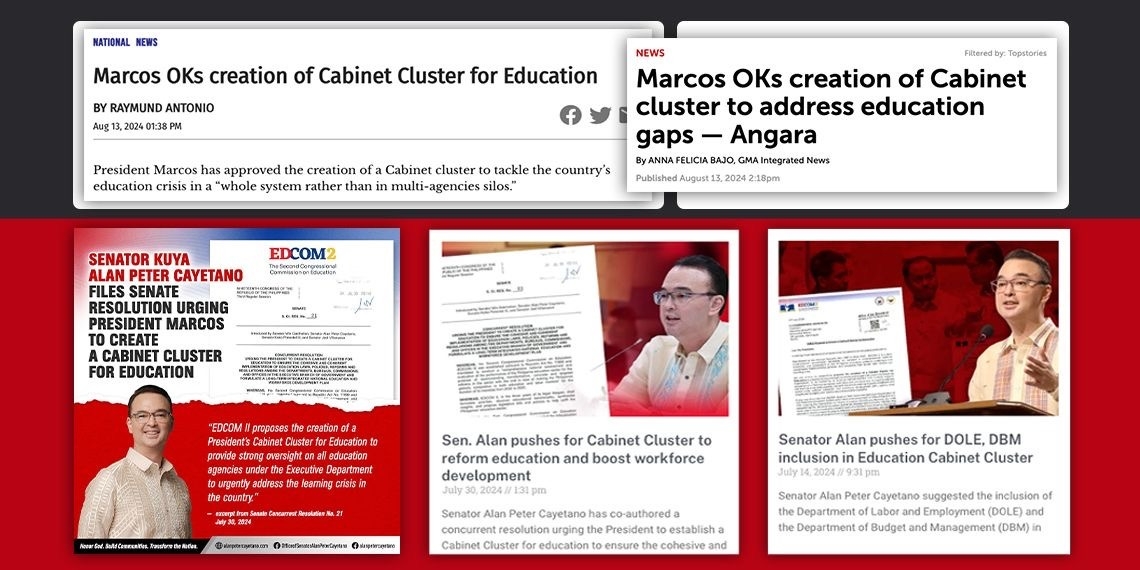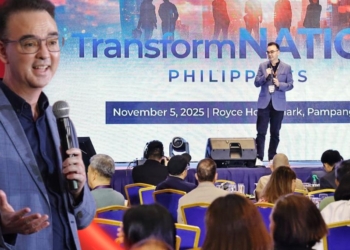Senator Alan Peter Cayetano on Monday lauded the Department of Education (DepEd) for providing entrepreneurial skills training to students and teachers, saying it is a step towards fulfilling K to 12’s objective of improving employment opportunities especially for the youth.
Cayetano made the remark as DepEd, now under the new leadership of former Senator Sonny Angara, committed to continuing the entrepreneurial programs it began last year in partnership with the Philippine Center for Entrepreneurship (PCE) from the private sector.
Cayetano emphasized the need to close the gap between livelihood opportunities and formal education in the country, a promise that the K to 12 curriculum has failed to fulfill.
“The main reason for the introduction of K to 12 was to better prepare students for higher education, and kung hindi mag-higher education, employable na and developed na ang middle level skills. Pero hindi nabigyan ng resources ang DepEd para magawa ito,” he said.
He also said giving students a chance to be mentored by veteran businessmen and entrepreneurs in the country provides young people with more viable career choices.
“I hope that in the end, no young person in Luzon, Visayas, and Mindanao will be told ‘beggars can’t be choosers.’ Mayroon na silang choice but we have to provide the knowledge not just from the textbooks and four corners of the classroom,” he said.
Cayetano, who heads the Senate Committee on Trade, Commerce, and Entrepreneurship, noted that MSMEs (micro, small, and medium enterprises) have long been major contributors to job creation, with almost 63 percent of the country’s total employment generated by MSMEs in 2020.
“The development of local and small businesses creates employment opportunities outside the Metro and promotes genuine inclusive growth by spreading development across the regions,” he said.
Cayetano has consistently pushed for measures that aim to boost MSMEs in the country by providing them with both financial and technical resources, like the proposed Puhunan Tungo sa Kaunlaran (PTK) Act.
“In many countries that have exhibited exceptional economic growth in recent years, MSMEs are a big part of their economic success,” he said.
Last month, Cayetano, who also co-chairs the Second Congressional Commission on Education II (EDCOM 2), co-authored a resolution calling for the creation of a Cabinet Cluster for education that will craft and oversee a quality national education plan that satisfies the needs of the labor market.
In the resolution, he pushed for the inclusion of the Department of Labor and Employment (DOLE) and the Department of Budget and Management to ensure sustained operational funding and alignment with workforce development goals.
EDCOM 2’s proposal was heeded by President Ferdinand Marcos Jr. on Monday after a sectoral meeting in Malacañang, recognizing the need for a “system-wide national integrated education and workforce development strategy that starts from early childhood education to basic education, senior high school, and so on.”
According to Palace press briefer Daphne Oseña-Paez, Marcos has directed the concerned agencies to devise the national plan, ensuring that “education issues are tackled as a whole system rather than in multi-agency silos.”






